We live in a global economy. Companies do business across borders. That’s usually a good thing for consumers, but it creates opportunities for fraudsters to cheat the government out of its tax revenue. An attempt to avoid paying the federal government customs duties is customs fraud and likely violates the False Claims Act.
What is customs fraud?
Simply speaking, customs fraud involves any act by an importer that evades, avoids, or fails to pay the U.S. government the customs duties, taxes, or tariffs it is owed. The term “customs fraud” covers many acts, but they all have one thing in common.
Those committing customs fraud are costing the government – and U.S. taxpayers – money. The False Claims Act allows the government to recover those withheld funds and damages as well. And if you blow the whistle on customs fraud, you could share in that recovery. The False Claims Act also enables whistleblowers to receive up to 30% of the recovery – all for doing one’s patriotic duty.
What is the difference between false claims and reverse false claims?
A “false claim” is submitting an invoice or taking money from the government for something you don’t deliver. A “reverse false claim” is when the government is not paid something it is owed. Most customs fraud comes as a result of a reverse false claim.
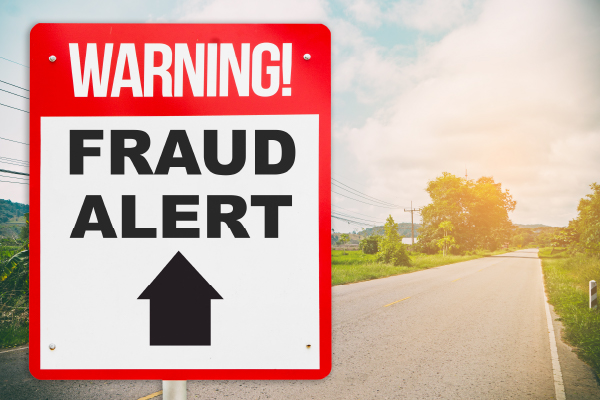
For example, if the federal government hires you to build an office with specific materials and characteristics, and you build that office with substandard materials or fail to deliver on the contract, you’ve submitted a false claim.
On the other hand, let’s say the federal government sets a tariff on furniture imports from Country X. A company falsifies its customs import declaration to state that its imports come from Country Y to avoid the tariff. They’ve withheld from the government money that it is owed – and made a reverse false claim.
What are the most common customs frauds?
There are numerous ways fraudsters skim money from the government in the import business, but the most common frauds fall into two categories: antidumping and countervailing duties. There are more, but those two are the most common.
Both common customs frauds involve misclassification, fraudulent valuation, or falsifying the source of imported goods.
![]() Misclassification – If U.S. Customs and Border Patrol expects customs duties for office furniture from a specific country, a company could classify that furniture as something else to avoid paying the duty. This activity can be blatant, such as categorizing office furniture as books, but it is often more subtle. A company recently paid $8 million to resolve allegations that it failed to pay import duties on mounted brake pads – which carry a duty – by claiming they were unmounted brake pads, which do not.3
Misclassification – If U.S. Customs and Border Patrol expects customs duties for office furniture from a specific country, a company could classify that furniture as something else to avoid paying the duty. This activity can be blatant, such as categorizing office furniture as books, but it is often more subtle. A company recently paid $8 million to resolve allegations that it failed to pay import duties on mounted brake pads – which carry a duty – by claiming they were unmounted brake pads, which do not.3
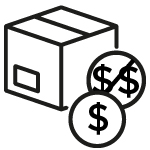 Misrepresenting value – By representing that a product has less value than it does, a company can reduce the amount of tariffs it pays. For example, importing clothes that might sell for $40 a set and valuing them at $20 a set might reduce the tariffs owed by 50%.
Misrepresenting value – By representing that a product has less value than it does, a company can reduce the amount of tariffs it pays. For example, importing clothes that might sell for $40 a set and valuing them at $20 a set might reduce the tariffs owed by 50%.
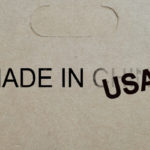
It’s vital to note that customs duties are based on the product type and the country of origin. Sometimes, a company will pay one type of tariff or duty while avoiding another, or they may seek to reduce the duties they pay.
Is it fraud, or is it a mistake?
Accidents and mistakes happen, to be sure. The system is complicated and ever-changing. The U.S. uses the Harmonized Tariff Schedule to determine the products and tariff rates for imports, but it’s a living document.
It’s possible that a company makes an honest mistake and inadvertently fails to pay the proper amount. It happens. However, it is a mistake that can and should be corrected.
What is the Harmonized Tariff Schedule, and why does it matter?
The Harmonized Tariff Schedule sets the tariff rates for and defines the categories of products imported to the U.S. It’s the master document for customs, so to speak. It is based on the international Harmonized System – a global system that sets common terminology and definitions for trade goods.
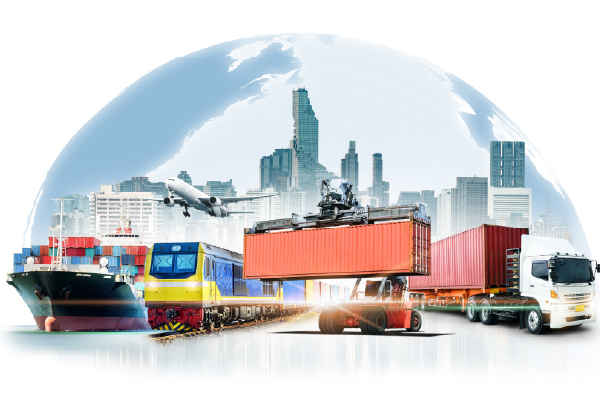
The Harmonized Tariff Schedule is constantly changing. Sometimes, it is due to a change in the origin country – perhaps the government ceases subsidizing an industry. Sometimes, the change comes from a domestic need. In June of 2022, President Joe Biden suspended countervailing and antidumping duties for solar equipment from Southeast Asia.
Customs fraud often results from an individual or company attempting to circumvent the Harmonized Tariff Schedule.
Antidumping and the False Claims Act
Some countries can produce goods at an extremely low cost, or perhaps they have a surplus of goods that prompts them to sell their stock for a very low price. This can significantly harm local and national industries when markets are flooded with artificially cheap goods. The domino effect of “dumped” goods can be staggering, causing a collapse in the market and harming industry and American jobs.
Antidumping is prohibited, and duties are imposed on this type of good to bring pricing into a market norm, enabling domestic producers to compete. When businesses and companies fail to pay government duties, the False Claims Act can kick in.
Countervailing duties and the False Claims Act
Countervailing duties are assessed by the Department of Commerce and collected by U.S. Customs and Border Protection. The duties are owed to the government on certain types of goods imported into the U.S. to safeguard U.S. industry. Here’s how it works.
Some governments subsidize industry to promote growth and enable the country to take advantage of its resources, labor, and global markets. Because the product or material was government supported, the producer can sell it at a lower cost: their government has already partially paid for it.
When these companies export their goods into the U.S., the prices they charge are artificially low (due to their government subsidy). To combat the unfair market practice, the government places countervailing customs duties on these goods to offset the foreign government subsidies and protect domestic industry.
What are some examples of customs duties fraud?
In 2020, Linde GmbH – a German company – agreed to pay $22 million to settle claims that it evaded customs duties by misrepresenting the nature, classification, and value of the merchandise and materials it imported to the U.S.3 There are many others that do not make the news, and still more that involve criminal cases and restitution as opposed to a False Claims Act recovery.
Why are whistleblowers crucial to stopping customs fraud?
As vast as it is, the U.S. government does not have enough manpower to check the millions of tons of products and materials moving across its borders every day. The law puts an affirmative duty on businesses and companies importing goods to declare them properly and provide accurate information.
While it is not strictly an honor system – audits are carried out – the sheer volume alone precludes uniform enforcement. The government depends on, and by statute, offers possible rewards to whistleblowers who step forward and report customs fraud.
Anyone with information regarding customs fraud can be a whistleblower. People within the industry will be familiar with the rules. Many claims get filed by competitors who see an unfair advantage in a company they compete with. Even if you’re not sure about what you’re seeing or haven’t got evidence, bring your suspicions to one of our experienced whistleblower attorneys. We can help you sort it out.
Familiarity with import/export laws, tariffs, duties, and other regulations can be helpful. Or you may simply see and hear it with your own eyes and ears. Whatever the source of your knowledge, you’ll want a whistleblower attorney who is familiar with the industry and understands how it all works – even if you don’t.
Our team is led by a former U.S. Attorney who is intimately familiar with fighting frauds of all kinds, and led his office to be one of the top four districts in False Claims Act recoveries during his tenure.1
How do I report customs fraud?
There are a few ways to report customs fraud, but we recommend a discreet conversation with an experienced whistleblower attorney. We can work to protect your identity for as long as possible, fight for your employment rights, and seek a maximum award if your claim succeeds.
Customs fraud involves many moving parts – Carolina Whistleblower Attorneys can help you
The government levels tariffs to protect American industry and the economy from unfair trade practices. Those who seek to avoid paying these duties are not only cheating the government out of tax money. American jobs and livelihoods are on the line.
The False Claims Act enables courageous whistleblowers to use their knowledge to try to thwart the fraudsters and defend their fellow Americans’ jobs. These customs schemes could be large or small. The cumulative effect is powerful, and they need to be stopped.
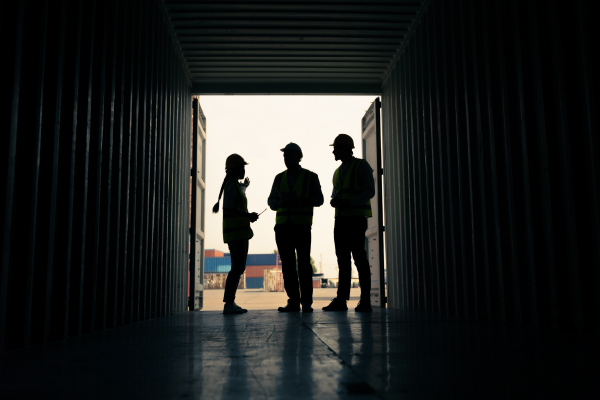
If you are aware of customs fraud at your company or a competitor, let us help you. We put your interests first, and our extensive financial, technological, and staffing resources give us the tools to investigate and file your claim. We can take it all the way to court if needed.
Check out our You-First Policy for the various ways we work with and can protect our whistleblower clients. And if you believe you have knowledge and evidence of customs fraud, contact Carolina Whistleblower Attorneys online for a free and confidential case evaluation or call us at 1-888-292-8852.
We will only take your case if we think there’s a good chance of success, and you won’t owe us a fee unless you receive a reward.2 Let us help you blow the whistle on customs fraud.
Contact the Carolina
Whistleblower Attorneys
If you’re wondering if it’s a good idea to speak with a whistleblower lawyer about what you know, let us set the record straight.
- Corporate ethics hotlines can be risky and may lead to termination. If you’ve already done this, call us immediately.
- Your coworkers could be aware of the fraud – or complicit in it – and you should not talk to them about it.
- The first claim to be filed under the False Claims Act can proceed – if you’re not first, you’re at a serious disadvantage and may get nothing (another reason not to speak to your coworkers about it).
- A confidential discussion costs you a few minutes, but could save you time, stress, and money.
"*" indicates required fields
